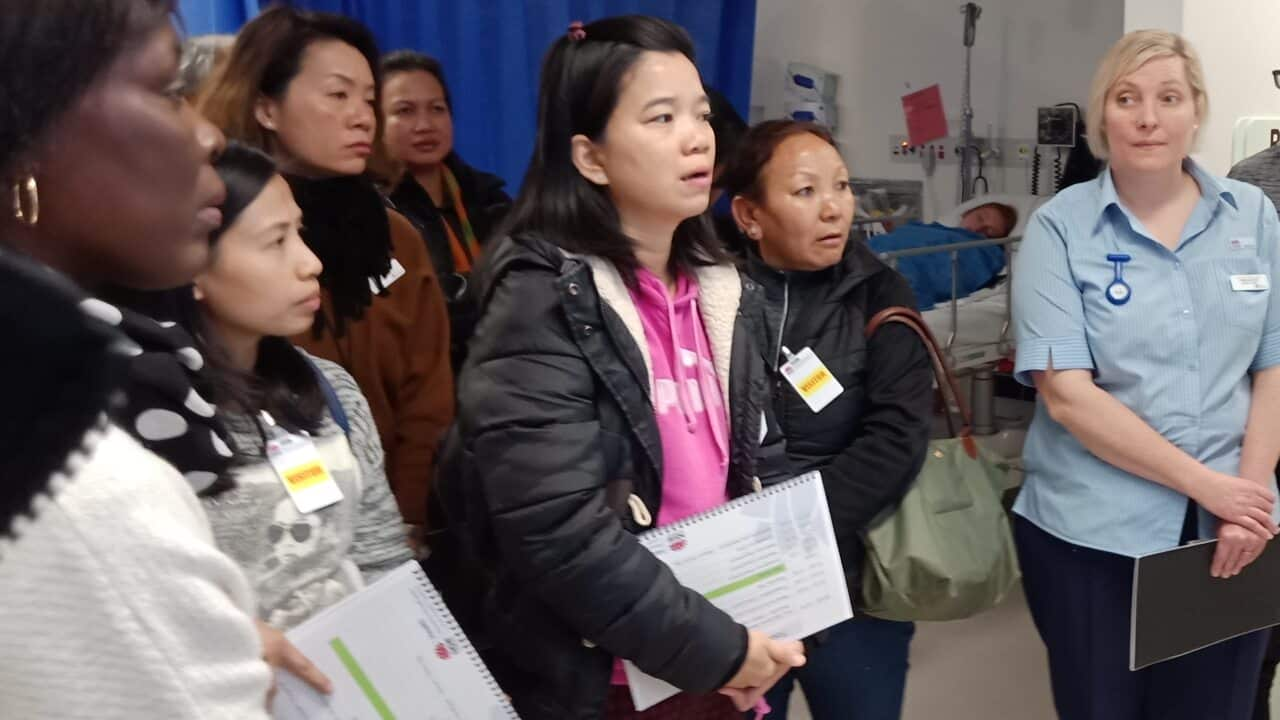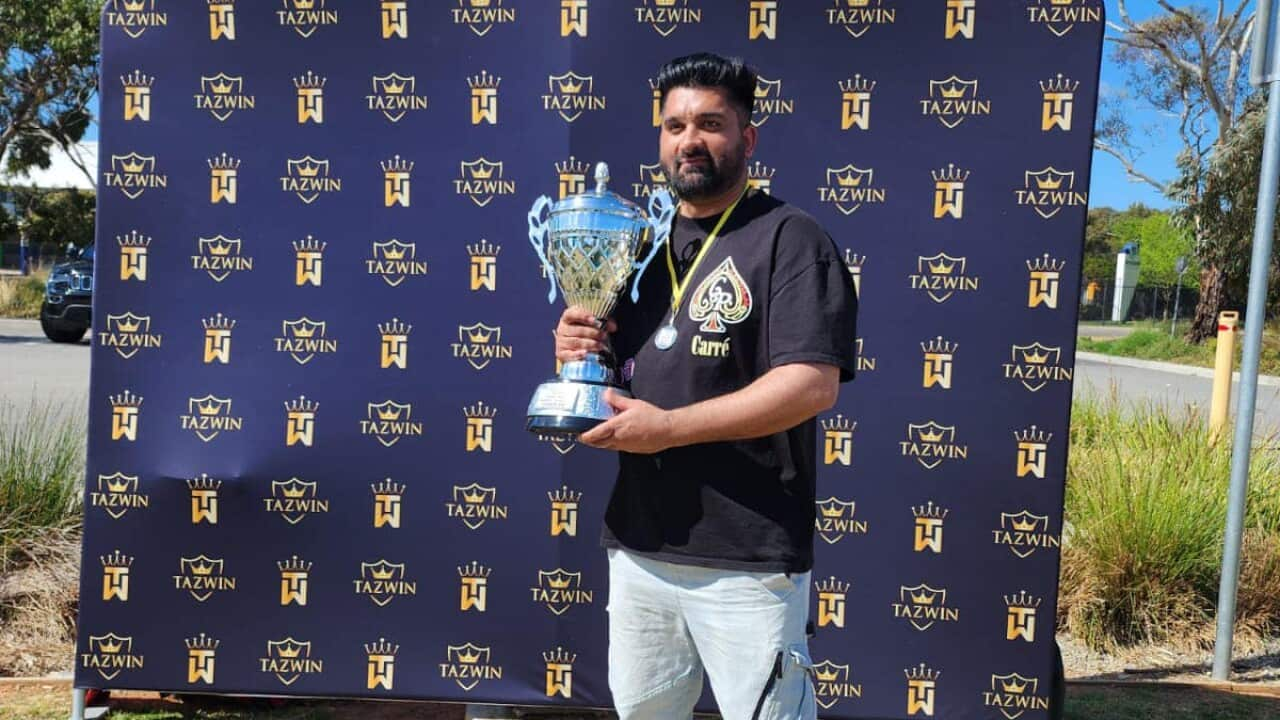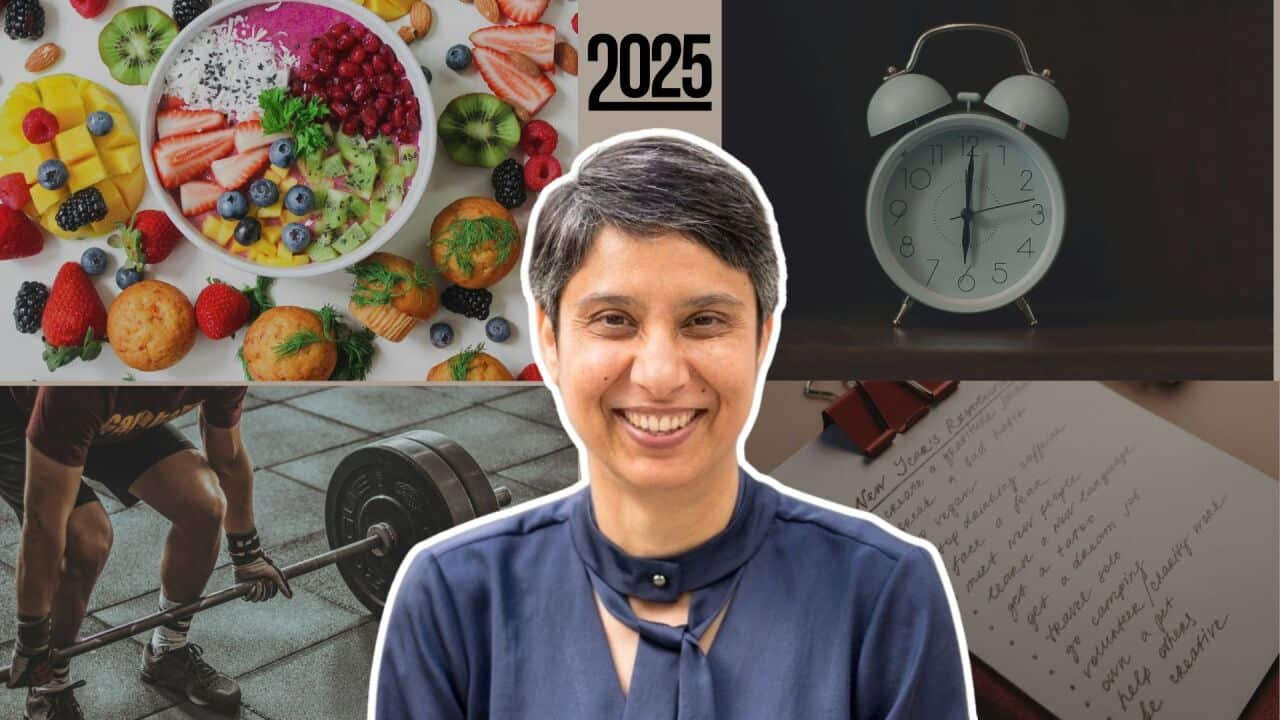Navigating the health system when you are sick can be difficult, particularly when English is not your first language.
That’s led to calls to simplify communication, with doctors and nurses urged to think about how they speak with patients.
Seventy-five per cent of Australians with English as a second language have what is called poor ‘health literacy’ – meaning they often don’t really understand what to do when they are sick, and where to go to get better.
As part of Multicultural Health Week, an adult English-language class was taken on a tour of the Shoalhaven Memorial Hospital in Nowra, on the New South Wales south coast.
The group was taken from ward to ward to familiarise themselves with the facilities and to learn what to do when a medical emergency arises.
“This tour is very helpful for me, like I know where, if my daughter is sick, where I can go, and if I go to this hospital who I can speak to first, so it’s really good for me to know about this,” said Yi Ping McCarthy, who moved here from Taiwan nearly a decade ago.
Many who now call this region home can struggle to understand Australia’s at-times complex health system.
Ms McCarthy says she still encounters language barriers at the doctor’s surgery.
“It is hard to understand, and the language is totally different. Some professionals I can’t understand. Even now sometimes I go to see the GP and he’s just “blah blah blah” and I’m like ‘what,” she adds.
That confusion can cause anxiety for those preparing to use the hospital more frequently, like expecting mother Mai Ngo, who is due to give birth just before Christmas.
“A little bit, but I try to relax so it’s good for my baby. I believe and I trust the doctor and the nurses,” says Ms Ngo.
But it’s not just a problem limited to migrants and new arrivals; 60 per cent of all Australians have low health literacy.
New South Wales health literacy and diversity health manager Fiorina Mastroianni is calling for simplification.
Ms Mastroianni says: “We need to get better at communicating or making sure that our patients and their families and their carers understand the information that we provide.”
Leissa Pitts, Multicultural Health Service Manager in the Illawarra Shoalhaven Local Health District, says there’s a lot at stake if there isn’t clear communication between patients and medical professionals.
“Communication is the point at which a health encounter will succeed or it will fail,” says Ms Pitts.
And with most patients forgetting about half of what doctors tell them, any strategies to help retain information are welcome.
Listen to this feature in Punjabi here.
The latest from SBS Punjabi

English language qualifications used as bargain for dowry, says women’s group







